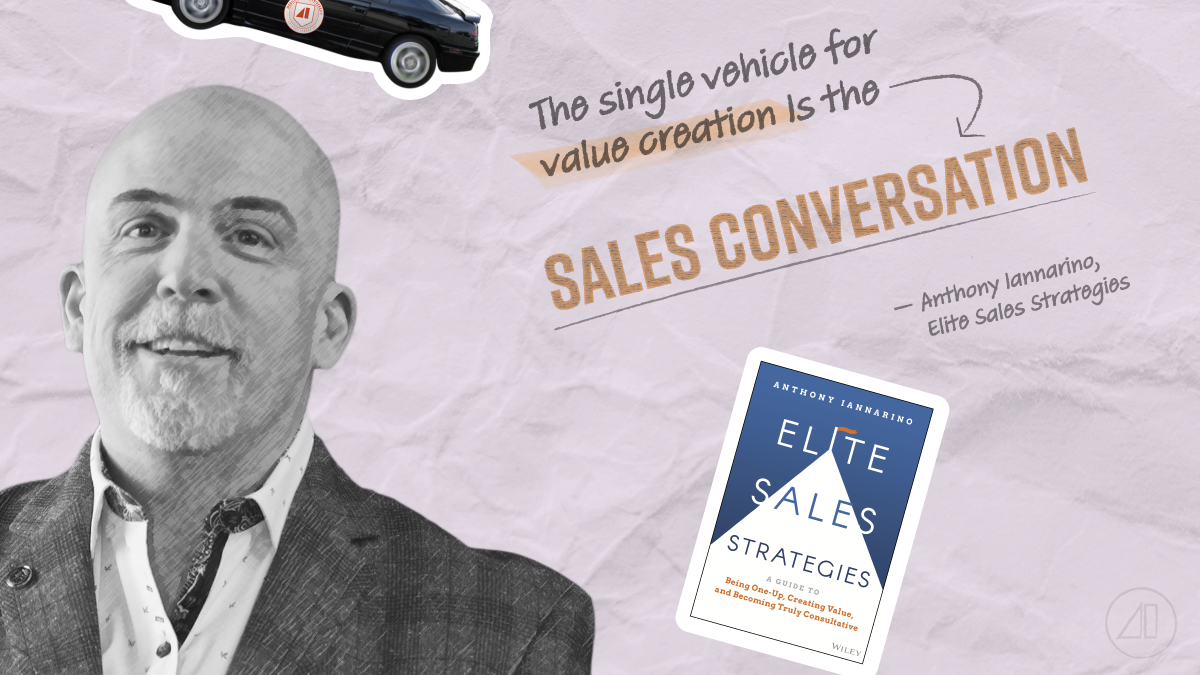The main outcome of discovery for most salespeople is to identify the client's problem and its impact. The reason the salesperson needs a problem is that in absence of a problem, there is no need for their "solution," a word designed to inflate a product or a service into something both the salesperson and their prospective client believes to be greater.
When discovery is limited only to asking questions to acquire answers about the client's problem with the intention of shifting to a conversation about how the solution solves the problem, you provide an experience that has been completely commoditized. When something is a commodity, there is no meaningful difference, something I have described here as "differentiating in exactly the same way as your competitor."
The Changing Nature of Discovery
The nature of discovery has been changing for at least two decades. Part of this change is a response to our environment, one of accelerating, constant, disruptive, change (the AC/DC economy). The result of this environment is uncertainty, something that will not be resolved by identifying a problem and the client's pain, both of which the contacts are intimately aware of before being asked.

Uncertainty often prevents people from taking action because they fear making a poor decision, one that makes things even worse. This brings us to one of the major shifts in discovery, the change from the salesperson asking questions of their clients alone to an approach where the salesperson helps the client to discover something about themselves, their company, the true nature of their problems (plural, because there are more problems than the one you want to solve with your solution), and how best to improve their outcomes.
The more the sales conversation is one-sided, with the salesperson asking questions with the only goal being the acquisition of a problem and its impact, the less valuable it is for the prospective client and their decision-makers. The more the sales conversation introduces questions that cause the client contacts to learn something they need to know to improve their results, the greater the value you create and the more you differentiate yourself and your approach.
Limiting discovery to the acquisition of a problem, the implications, and the client's future goals is not doing discovery, as you already know what the client's problem is, as you solve it every day. You also are well aware of the implications of these problems, as you have had hundreds of conversations about them in the past. While you may not exactly what the client's future goals are, you could easily make a list of five goals that would cover all your clients.
Here is a list of five for sales training:
- Net New Revenue Growth
- Goal Attainment
- The Acquisition of New Clients
- Increase in Average Deal Size
- Greater Control Over the Sales Conversation
There is nothing in this list that says anything about sales training because no one wants to buy sales training. They buy the results of sales training.
How to Improve Your Discovery
There are ways you can improve your discovery, starting by not following the well-worn path that everyone else uses.

- Help Your Client Discover: I know you've been taught and trained to ask questions that allow you to acquire information, but now your client has a greater need for you to help them understand why they have poor results. You can acquire information by asking questions while also asking questions that help the client discover something useful for the decision they are going to need to make in the future.
- Identify the Client's Outdated Assumptions: A client who seven years ago made the decision they are considering now made that decision in a different time. During the intervening years, a lot has changed. Their assumptions are likely to have outlived their usefulness and need to be updated.
- Understanding Their Environment: There are some who believe insight-based sales approaches are about sharing data and insights. Like the sales training list above, it's the outcomes of insights that are valuable. One of the outcomes insights can accomplish is helping clients learn what's changed in their environment and how best to address it.
- Creating Paradigm Shift: There may be nothing more valuable when it comes to change than a paradigm shift. If you were asked to invest in a company that allowed people to rent VHS movies, your money would rest safely in your bank. The paradigm shift to streaming eliminated the old approach.
- How to Make a Decision: Your contacts may have the best of intentions, but because they make the decision they are considering so infrequently, you have to help them discover how they should pursue their change initiative, who they must include, what conversations they need to have, and what is going to be critical for success.
As I write this, it is clear there are at least fifteen more bullet points worth adding to this list. To be sure, discovery now is improved by helping the client discover what they need to learn, something that in no way prevents you from learning what you need to learn to better serve your prospective client.
The nature of consultative sales is one where the salesperson is One Up, leading the client, which requires knowing more than the client when it comes to the decision they are being charged with making and the better results they need. Any discovery that doesn't create value by helping the client learn what they need to know to improve their outcomes is by definition, not consultative.
You don't have to stop seeking a problem and its implications, but you should extend discovery to help the client make their own discoveries along the way. The first discovery conversation can be more valuable to both you and your client through this change, increasing your odds of winning a new opportunity.












